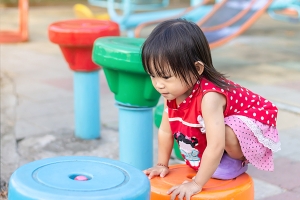
Ever wonder why kids seem to unleash their negative emotions as soon as they come home from school or daycare? A local dad (who wishes to remain anonymous) describes what many parents experience: “All I ever hear from my son’s teachers and other parents is what a great kid he is. Polite and thoughtful. Happy to help and participate. This is not the same child I pick up from school. Our afternoons are filled with arguing, whining and lots of emotions. It makes me wonder what I’m doing wrong. Why do other people get the best of my child and at home we battle through homework and dinner every night?”
Busy and demanding school days can leave kids feeling tired, overwhelmed and behaving in ways that are baffling. So, what’s going on and what are parents to do?
Restraint Collapse
The mystery of the meltdown has a name: restraint collapse. Parenting educator Andrea Loewen Nair coined the phrase “afterschool restraint collapse” in 2016 saying, “If someone’s ability to handle things is like a container, it’s the point where that container keeps getting filled past the brim and spills out everywhere. And once that happens, often the container collapses and just falls apart.”
Why Does it Only Happen with Parents?
It takes work and effort for kids to do everything they’re asked to do in a school day. Mental energy is spent while pent up physical energy builds. When feeling fidgety, talkative, rowdy, loud, frustrated, angry—even joyful and rambunctious—kids must control their feelings and keep a reign on their behavior to succeed. When they see parents or caregivers at the end of the day, kids feel safe enough to let down their guard and pour it all out.
What to Do and How to Help
How do you manage these big emotions at the end of the day when you’re just as tired from work as your child is from school?
Educational Psychology Specialist Kaydon Schanberger of San Diego Kids First has good news. Armed with empathy, understanding and a plan, parents can help kids manage restraint collapse and sail a little more smoothly through the afterschool hours. Here’s what she recommends:
- Smile when you see your child. After spending a day apart, make your reunion a moment of genuine warmth and connection. Schanberger encourages parents to greet children with a hug and a smile to let them know you’re happy to see them. “If you’ve had a stressful day yourself, take a couple deep breaths and set your intention to be in a good mood,” she says.
- Offer a healthy snack. A nourishing snack does wonders for both body and mind, so give kids a few choices. Set out healthy options such as vegetable sticks, fruit, nuts or yogurt. Don’t forget to also offer water. If you’re heading to an afterschool activity, bring a couple of snack choices in the car. “Even if pick-up is close to dinner time, a snack is always a good idea,” Schanberger says.
- Save your questions. Sometimes out of eagerness to bond, parents pepper kids with questions as soon as they get in the car. Creating quiet space after a busy day will get a better response according to Schanberger. “Let your child lead the conversation,” she says. “You may hear what’s really on their minds, rather than answers they think mom or dad want to hear about their day.”
- Allow time to unwind and re-connect. When you arrive home, let kids take a break to do something they enjoy. Let them play with the family pet, play outside, help in the kitchen or spend time resting in their room. “No one wants to be picked up and hear a list of things they have to do or demands that are coming next,” says Schanberger. Building this kind of margin into your day is a necessary part of growing healthy families.
- Recognize the meltdown for what it is. Remember that a restraint collapse meltdown is different from an intentional tantrum. “Some parents don't know what to do with a meltdown,” says Schanberger, “so they try to control the situation through discipline.” A more helpful approach is to treat the meltdown as a time when children need a soft place to land (not as a behavior problem).
For parents like the local dad we spoke to, learning to recognize that meltdowns are a sign his son feels safe enough to pour out what he’s been holding in all day is reassuring. “It’s good to know that this isn’t something I’m doing wrong,” he says, “but a way for us to learn together how to handle hard feelings and being tired in more positive, loving ways.”
Solving the mystery of end-of-day meltdowns gives parents an opportunity to help kids feel nurtured and loved. By validating feelings and allowing room for expression and rest, kids learn how to make the transition from school to home more easily, even after a particularly stressful day.
Jody Lee Cates is a local mom, award-winning writer and author of our column “Parenting with Purpose.”

This article won an award from San Diego Press Club! Jody Cates won second place in the Column—Serious subject category for her “Parenting with Purpose" column, featuring this article. See all of San Diego Family's awards HERE.
--------------















